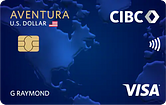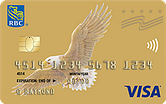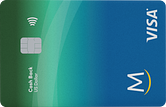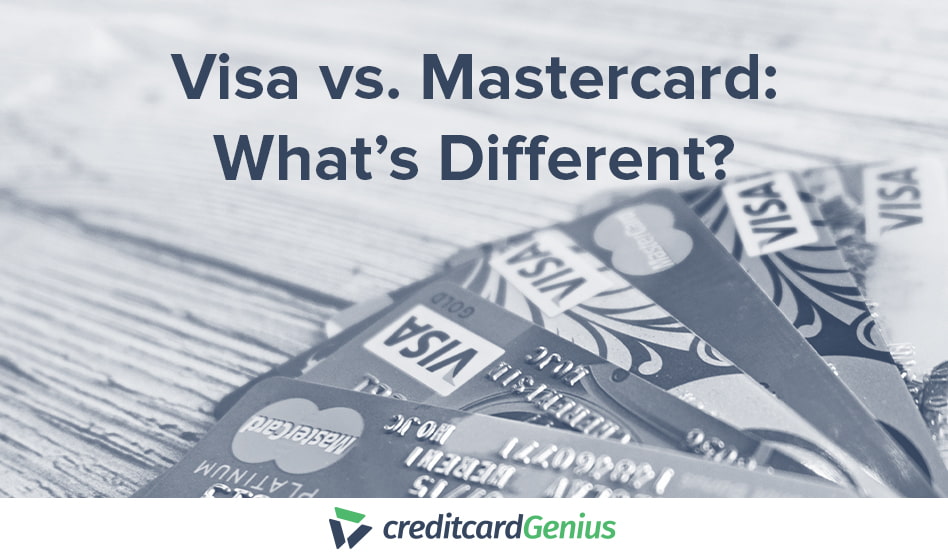Best U.S. Dollar Credit Cards In Canada For 2026
The best credit cards for Canadians who shop in USD and want to save on fees.
The CIBC U.S. Dollar Aventura Gold Visa Card is the best U.S. dollar credit card in Canada, though there are a few high-quality options. If you often shop in the U.S. or travel across the border, having a dedicated U.S. dollar card can save you money and make spending much easier.
| Credit card | Annual fee | Rewards | |
|---|---|---|---|
| #1 | CIBC U.S. Dollar Aventura Gold Visa Card | US$35 | * 1 point for every $1 spent on travel through CIBC Rewards * 1 point for every $2 spent everywhere else |
| #2 | RBC U.S. Dollar Visa Gold | US$65 | * 1 point per $1 spent on all purchases |
| #3 | SCU US Dollar Mastercard | US$50 | * 1 points per US$2 spent |
While many Canadian credit cards offer low or no foreign exchange fees, a true U.S. dollar credit card is designed for those who spend regularly in U.S. dollars. It will help you avoid foreign transaction fees while letting you pay directly in U.S. currency.
The information below reviews the top options in Canada and highlights the key details to help you choose the right U.S. dollar credit card for your lifestyle.
Key Takeaways
- Since U.S. dollar credit cards process transactions in USD, you'll have to pay the card with a USD bank account.
- USD credit cards charge modest annual fees, but potential rewards can offset the cost.
- Although you won't be charged a foreign exchange fee for U.S. purchases, you'll still be charged the fee when using the card abroad.
- A U.S. dollar credit card transacts in U.S. dollars, while a card with no foreign exchange fee simply skips the usual FX fee.
Best U.S. dollar credit cards in Canada
Our award for the best U.S. dollar credit cards goes to the CIBC U.S. Dollar Aventura Gold Visa Card thanks to its no currency exchange fees on U.S. dollar purchases, single point per dollar spent on purchases, and its 4 types of insurance, which help offset the card's annual fee.
Our Silver award goes to the RBC U.S. Dollar Visa Gold, which also offers 1 point per dollar spent as the CIBC U.S. Dollar Aventura Gold Visa Card (though the points are less valuable), but offers 8 types of insurance – making it a robust travel partner south of the border.
And our Bronze award goes to the SCU US Dollar Mastercard, which provides 0.5 points per dollar spent, no currency exchange fees in U.S. dollars, and 3 types of insurance.
The #1 U.S. dollar credit card

The CIBC U.S. Dollar Aventura Gold Visa Card is our pick for the best U.S. dollar credit card in Canada. If you make frequent online purchases or trips to the U.S., you'll earn great rewards that can be redeemed for flights, travel, statement credits, CIBC financial products, and merchandise – all without suffering currency exchange fees.
The #2 U.S. dollar credit card

If you travel often, you'll appreciate the insurance and rewards that come with the RBC U.S. Dollar Visa Gold card. You'll also have the opportunity to earn bonus points by shopping at select retailers. You can redeem your points for merchandise, gift cards, financial products with RBC, and by transferring points to WestJet Rewards.
The #3 U.S. dollar credit card

If you prefer banking locally, the SCU US Dollar Mastercard, from Steinbach Credit Union offers basic rewards (1x per $2 spent on all purchases), essential insurance (including car rental insurance), and a competitive low interest rate for a manageable US$50 annual fee.
Compare top U.S. dollar credit cards by Genius Rating
To determine our Genius Ratings, we examine more than 126 features of each credit card across 7 main categories. When focusing on U.S. dollar credit cards, we give more weight to the fees, insurance, and rewards categories. These features can really make a card stand out.
We then run them through our algorithm, which generates a Genius Rating score out of 5. This is how we weighted the categories for U.S. dollar credit cards:
- Rewards (28%)
- Fees (28%)
- Insurance (28%)
- Perks (4%)
- Interest (3%)
- Approval (3%)
- Acceptance (2%)
Here's how the top U.S. dollar cards compare when arranged by Genius Rating:
Awards are given out once a year but rating and rankings can shift throughout the year. The #1 card for 2026 is pinned to the top.
Learn more about our Genius Rating methodology
How to choose the right U.S. dollar credit card
When looking for a card that offers no foreign‑exchange fee and a competitive rewards rate on U.S. dollar purchases, compare annual fees, sign‑up bonuses, and any additional perks such as travel insurance that match your financial habits.
Rewards
USD credit cards may offer rewards such as cash back or points, but those rewards will likely be significantly lower than those of a top-tier travel card. For example, all three cards on our list earn approximately 1 point per $1 spent (the SCU US Dollar Mastercard earns 1 point per $2 spent on purchases).
You may also receive a welcome bonus, though they're usually quite small. Both the CIBC U.S. Dollar Aventura Gold Visa Card and RBC U.S. Dollar Visa Gold offer a basic welcome bonus, while the SCU US Dollar Mastercard does not.
Tip: No matter what credit card you use, you could be earning bonus cash back on top of your card's rewards. Input your monthly spend in the GeniusCash app, and level up to earn real cash.
Fees
Most U.S. dollar credit cards charge an annual fee of up to around $65. The CIBC U.S. Dollar Aventura Gold Visa Card charges a fee of US$35, for instance, while the RBC U.S. Dollar Visa Gold will cost you US$65, and the SCU US Dollar Mastercard costs US$50 per year.
One area you won't have to worry about is the foreign transaction fee (at least in the United States). However, if you travel outside the United States, you may be charged a foreign transaction fee of up to 3% on foreign-currency purchases.
Insurance
USD credit cards typically offer significantly less insurance than premium travel cards. For example, the RBC U.S. Dollar Visa Gold only offers 8 types of insurance, whereas the American Express Cobalt Card (our best overall credit card in Canada) offers 10.
Here's how our top U.S. dollar picks compare:
| CIBC U.S. Dollar Aventura Gold Visa Card | RBC U.S. Dollar Visa Gold | SCU US Dollar Mastercard | |
|---|---|---|---|
| Extended warranty | 1 year | 1 year | 1 year |
| Purchase protection | 90 days | 90 days | 90 days |
| Travel accident | $100,000 | $500,000 | N/A |
| Trip cancellation/interruption | N/A | $2,500/$2,500 | N/A |
| Baggage delay/Lost or stolen baggage | N/A | $500/$500 | N/A |
| Rental car | Yes | Yes | Yes |
Perks
While USD credit cards are a subset of travel credit cards, they typically offer significantly fewer perks and benefits. Beyond basic insurance and no currency exchange fees on USD purchases, these cards offer little else, making them a great tool for USD purchases without the frills that tend to drive up annual fees.
Interest rates
You can expect standard interest rates similar to those of other basic travel cards. Our top three cards charge interest rates of 19.99%-21.99% on purchases and approximately 22.99% on cash advances and balance transfers.
Approval
While USD credit cards offer lower rewards and perks than other travel cards, that doesn't mean they are easy to apply for. Both the RBC U.S. Dollar Visa Gold and SCU US Dollar Mastercard have no minimum income requirement, but both cards require an excellent (760+) credit score at application. Our overall winner, the CIBC U.S. Dollar Aventura Gold Visa Card, requires excellent credit and has a $15,000 minimum income requirement.
Acceptance
Acceptance isn't a huge factor on U.S. dollar credit cards, as all that really matters is whether or not you can make U.S. dollar purchases with the cards.
How U.S. dollar credit cards work
Rather than receiving a transaction in U.S. dollars and converting it to Canadian dollars on your credit card statement, a U.S. dollar credit card processes transactions in U.S. dollars.
This also means that you must pay your bill in U.S. dollars.
To make this work, you need a USD bank account (which major banks offer) and a funding source. You can use U.S. dollar income or convert Canadian dollars to send to your U.S. account, but keep in mind that this incurs currency exchange fees.
Can a Canadian get a U.S. credit card?
Many Canadians wonder if they can get a U.S. credit card, and the answer is yes – but it often requires taking a few extra steps.
American banks typically require applicants to have a Social Security Number (SSN), which is similar to a Canadian Social Insurance Number (SIN), or an Individual Taxpayer Identification Number (ITIN). You'll also need a U.S. mailing address.
Credit card companies also sometimes require you to have a bank account from a U.S.-based institution to make payments more manageable.
If you decide a U.S. credit card is right for you, taking these steps can make the process a bit easier:
- Apply for an SSN and/or ITIN
- Set up a U.S. mailing address
- Open a U.S. bank account to handle payments
- Apply directly through a U.S. bank or financial institution that issues credit cards to non-residents.
U.S. dollar credit card pros and cons
There are more drawbacks than advantages when it comes to U.S. dollar credit cards. But we'll let you weigh the pros and cons and decide for yourself.
- You'll save on currency conversion from Canadian to U.S. dollars. If you frequently make a lot of purchases in USD (and you're making money in USD), it makes a lot of sense to have one of these credit cards. You'll save big on currency conversion rates, whether through a bank or with a credit card.
- U.S. credit cards in Canada generally have low annual fees. U.S. dollar credit cards typically charge fees ranging from $35 to $65 per year.
- You'll have little choice when choosing a card. There's a very limited selection of these credit cards, and they're all offered by the big banks. This means you might be at the mercy of the bank's policies or fees.
- U.S. dollar credit cards usually have poor rewards. Many U.S. dollar credit cards we track offer no rewards, and those that do are relatively meager given their annual fees.
- You'll need a U.S. dollar bank account. To avoid currency conversion fees, you must have a U.S. dollar bank account when making card payments. Otherwise, you'll pay a fee each time you convert funds from your Canadian chequing account.
- There are no fee-free options. The annual fees aren't high, but they're still fees. That said, the BMO U.S. Dollar Mastercard waives the typical US$49 fee when you spend more than US$3,000 on the card every year, and the Meridian Visa US Dollar Card is currently waiving their $65 fee for the first year you have the card.
- You'll pay currency conversion fees on CAD purchases. If you use the card to make purchases outside of U.S. dollars, you'll pay a 2.5% conversion fee – even in Canada. If you get a U.S. dollar credit card, use it exclusively for USD purchases.
Should you get a U.S. dollar credit card?
Most Canadians probably don't need a U.S. dollar credit card, but one could be beneficial if you:
- Frequently travel to the U.S.: Using a USD credit card can help you avoid foreign exchange fees and simplify your budgeting (assuming you also pay the card in USD).
- Shop online in USD: If you frequent American online shops, you can save on currency conversion fees by paying with a USD credit card.
- Winter down south: If you consistently spend extended periods in the U.S., you'll certainly find a USD card beneficial for saving on conversion fees and better managing expenses.
Before you apply, consider annual fees, credit score requirements, and your spending habits to ensure the card's benefits are worth the cost of carrying it.
Alternatives to U.S. dollar credit cards
If a USD credit card isn't your preferred form of payment, here are a few ways to save on cross-border transactions:
- Use a no-foreign-exchange-fee credit card: Most credit cards charge around 2.5% on transactions in a different currency (including USD). However, these cards don't charge for foreign currency transactions, making them valuable if you frequently travel around the world.
- Open a U.S. bank account and apply for one of their credit cards. This option only makes sense if you can provide proof of an American address and a valid Social Security Number.
- Open a Canadian-based U.S. bank account: Yes, you can open a U.S. account with your Canadian bank. Most allow you to spend in U.S. currency with your debit or credit card.
- Transfer one large sum of money at a time: Instead of getting dinged with a 2.5% foreign exchange fee on every purchase, go to the bank and exchange enough cash to cover the cost of your trip, altogether avoiding your credit card's exchange fees.
FAQ
Can I get a U.S. dollar credit card in Canada?
Yes, you can apply for a U.S. dollar credit card as long as you meet the requirements. Eligibility typically requires being a Canadian resident and reaching the age of majority, along with a specific credit score requirement.
Is it worth having a U.S. credit card in Canada?
For most Canadians, the answer is no. However, it may make financial sense if you frequently make purchases in U.S. dollars, travel to the U.S. often, have an American bank account, or receive payments in U.S. dollars.
Is there a U.S. dollar card for businesses?
Yes, there are a handful of U.S. dollar credit cards that are well-suited to Canadian businesses. There's a business version of the Scotiabank US Dollar Visa Card, though it requires you to have a US Dollar Business account.
Which Canadian banks offer U.S. credit cards?
The big banks, including BMO, RBC, TD, and CIBC, all offer this type of card. Credit unions and online banks often offer them too – Meridian provides a valuable option with its Meridian Visa US Dollar Card.
Can Canadian citizens get U.S. credit cards?
It's possible, but Canadians who want a U.S. credit card from an American bank must provide proof of an American address, a U.S. bank account, and a Social Security Number (not a Social Insurance Number).
Do I need a U.S. address to get a USD credit card?
Not necessarily. Several banks offer USD credit cards specifically for Canadians, but if you're applying for a USD credit card from a U.S. bank, you'll need to have a U.S. address and Social Security Number.
































